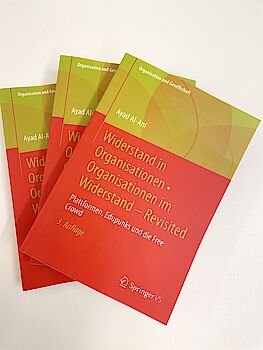Since the Industrial Revolution, the individual has been working and learning in hierarchies based on the division of labor. And this despite the fact that Adam Smith already noted that in this form of organization the individual becomes as "obtuse and simple-minded as a human being can become. Counter-movements, such as those in the 1960s, could in principle do little to change these structures. Individual freedom of action was thus "probably illusory" even in a free market economy, as Kenneth Arrow noted in his standard work on organizations. Most recently, however, at the beginning of the millennium, Digitalization raised hopes for new forms of organization that would not suppress individuality, but rather make better use of it in the interest of the individual and the institution. Couldn't even the political sphere be radically democratized and Habermas' concept of deliberation finally realized?
A few years later, it became apparent that this opening of traditional institutions was a rather short-lived one. The 2008 financial crisis inspired capitalism and the efficiency-trimmed hierarchy to selectively integrate and co-opt innovative ideas, resources, and concepts from outside corporate boundaries. However, the consequences of this repair strategy for free forms of organization on the web were dramatic: the peer of the open source movement became the crowdworker, the sharing economy became the rental economy. Moreover, the opening of political institutions and the founding of new forms of organization (pirates, Occupy) ebbed away with the end of the crisis.
However, there are now indications that individuals will no longer return completely to the traditional institution based on the division of labor. Are communities emerging on the Net that can influence companies or even existing nations? Is the digital sphere now becoming a lifeboat and helping to transfer new ideas and concepts into normal space?
Possible answers to these questions are elaborated by Prof. Dr. Dr. Ayad Al-Ani, in the third edition of his book "Resistance in Organizations - Organizations in Resistance - Revisited. Platforms, Edupunks and the Free Crowd". After a short book launch, the discussion will take place on January 11, 2023, starting at 6:00 pm at ECDF:
Prof. Dr. Dr. Ayad Al-Ani, Professor at the School of Public Leadership at Stellenbosch University and Associate Member at the Einstein Center Digital Future
Prof. Dr. Philipp Staab, Professor of the Sociology of the Future of Work at the Humboldt University of Berlin and at the ECDF
Tina Groll, editor in the politics, business and society department at ZEIT ONLINE, member of the German Press Council since 2012 and Federal Chair of the German Union of Journalists (dju) in ver.di since 2019.
Prof. Dr. Anastasia Danilov, Professor of Organizational Economics - Future of Work at ECDF and Humboldt University Berlin
Participation is free of charge. Registration is requested at info@digital-future.berlin.

